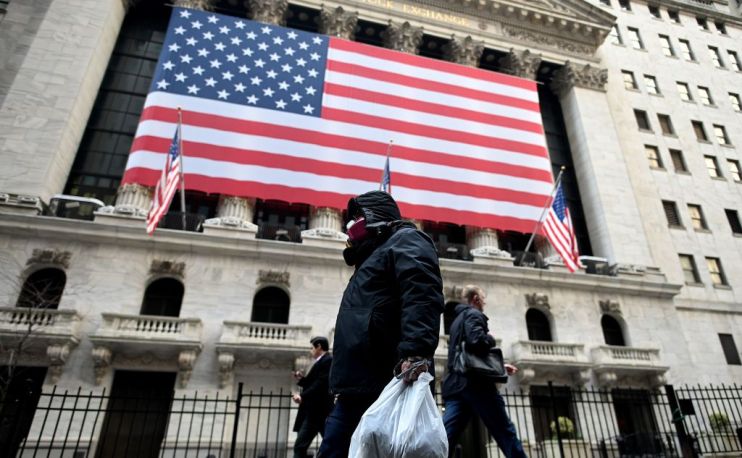Global stocks set to spiral despite coronavirus stimulus measures

Global stocks looked set to slump yet again today as investor panic over the escalating coronavirus outbreak clouded the impact of major government stimulus policies.
Hong Kong’s Hang Seng index slumped 3.5 per cent while Japan’s Nikkei dropped 1.7 per cent overnight, failing to follow a rally in US stocks yesterday.
Wall Street rebounded yesterday after US President Donald Trump outlined a massive $1 trillion package to prop up its economy.
The FTSE 100 also jumped after the UK pledged a £330bn package of business loans designed to help the struggling hospitality sector.
But today futures trading on the Euro Stoxx 600 fell almost four per cent ahead of this morning’s open, while the FTSE 100 is set to open around 230 points lower.
“The rebound seems to be losing momentum as of Wednesday. The magnitude of the pandemic is outweighing stimulus hopes,” Jasper Lawler, head of research at London Capital Group, said.
“You know that no government policy can stop the fallout from the coronavirus so you’re not ready to buy but if the blow can be cushioned a little you’re not in quite such a panic to sell.”
The plunge in Asian stocks came despite reports Japanese Prime Minister Shinzo Abe has formed a panel of economic ministers and the Bank of Japan to look at measures to support the economy.
US stock futures fell 3.7 per cent in Asia, falling to their daily limit outside US trade. Tech-heavy Nasdaq is on track to shed around five per cent, while the Dow Jones could drop 1.7 per cent.
Yesterday the Dow jumped five per cent, or 1,049 points, while the S&P 500 climbed six per cent on Trump’s stimulus package.
“A rise of 1,000 points in Dow is something you see only during a financial crisis. It is not a good sign,” said Tomoaki Shishido, senior fixed income strategist at Nomura Securities, told Reuters.
“A rise of 100 points would be much better for the economy.”
Yesterday UK chancellor Rishi Sunak pledged to do “whatever it takes” to help the UK economy survive coronavirus.
His £330bn loan package is equivalent to 15 per cent of GDP. And further plans to help airlines and airports are set to be unveiled in the coming days.
Ipek Ozkardeskaya, senior analyst at Swissquote Bank, said central banks are “running out of steam”, while European government measures have been hit by a decade of austerity.
“Massive fiscal and monetary measures have again been a flash in the pan,” Ozkardeskaya added. “FTSE futures hint that British stocks will continue nose-bleeding on Wednesday. Energy stocks will inevitably feel the pinch of a further slump in oil prices.”